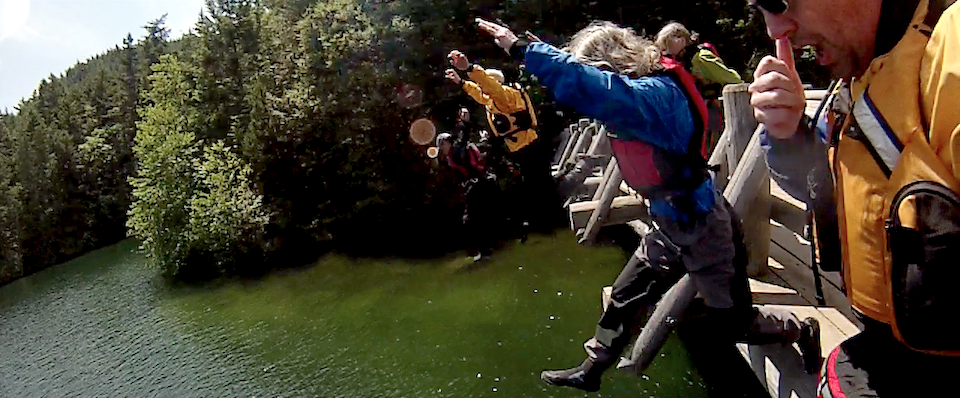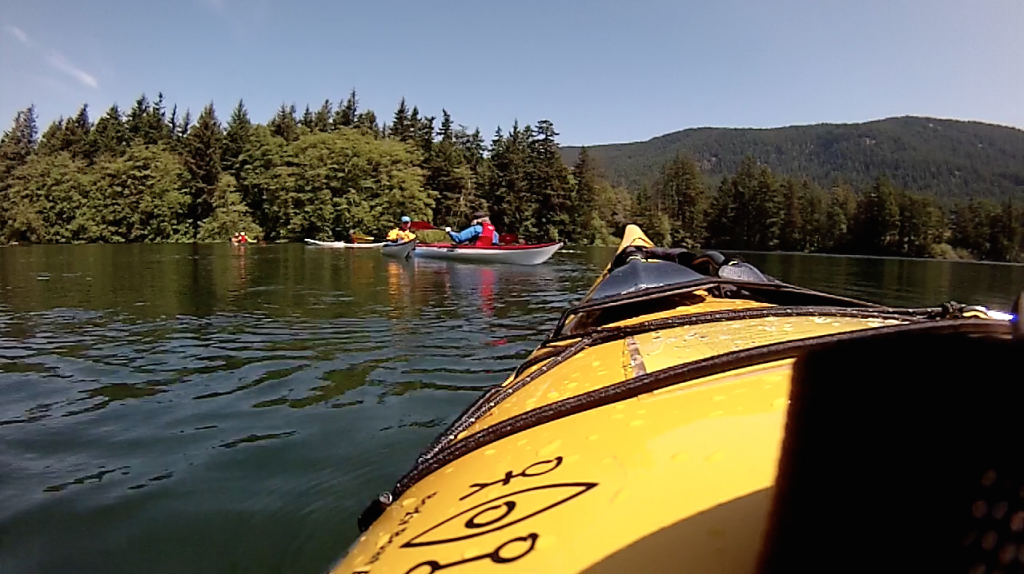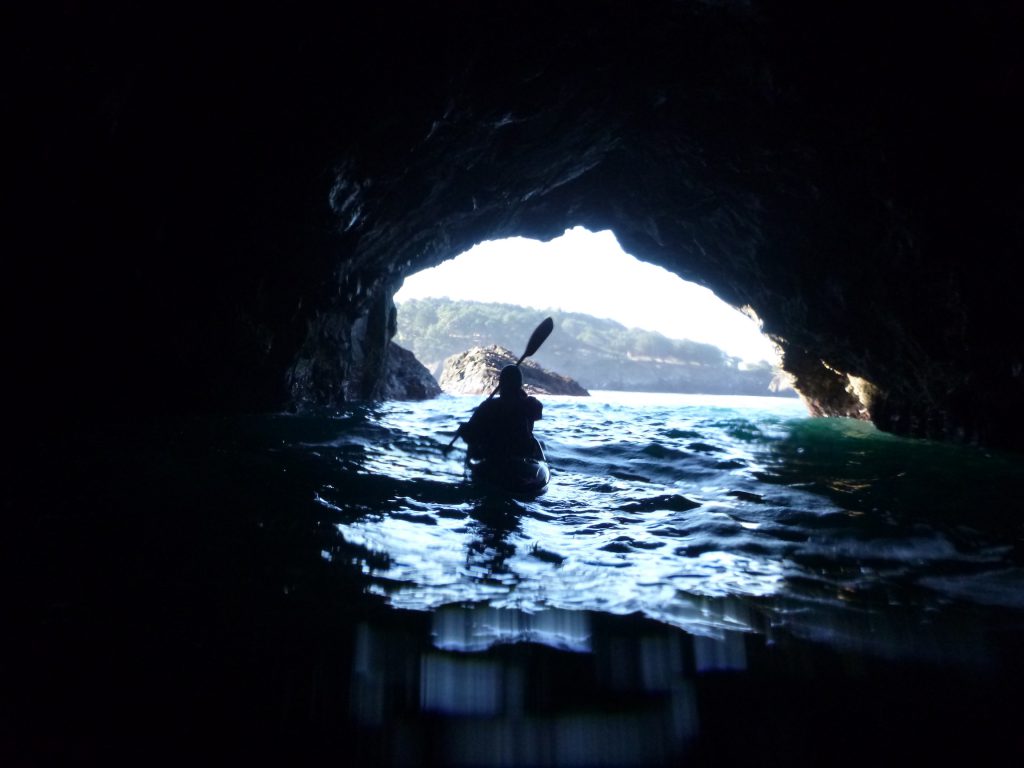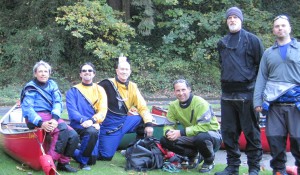For the last two years, Alder Creek has hosted BCU Week in Astoria OR — a series of different training and certifications in the British Canoe Union (BCU), North America program. I’ve been lucky enough to attend both times. Last year at BCU Week, I attended the BCU 3-star Sea Kayak training with Jeff Laxier and Malcolm Kelly.
This year, it was time to see how my skills have progressed and take the assessment for 3-star sea kayak. And while I was there, I had an opportunity to do some additional canoeing and take the 3-star training in canoe as well. *And* do some evening classes also. What a week!
If you want to look at photos, check out the photo albums (below) on my Facebook page. This post will have fewer photos but more canoe/kayak info:
This page is broken into the following sections, and you can jump to any of them:
3-Star Canoe Training & Assessment

Locations: Portland and vicinity
Coach: Rob Yates
Description: A two-day course in open canoe covering variety of topics, including a mix of solo and tandem canoe in flat and moving water (rivers). Here’s the syllabus.
I can’t tell you how much I enjoyed this course! Rob was a great instructor and we learned so much and had a great time doing it. With me in the class was my friend (and tandem partner) John from Samammish, and some new friends from Florida, Alaska and Portland.

Day 1 was practicing on flat water, a lake. My GPS from Day 1 looks like a plate of spaghetti! One of my favorite moments from Day 1 was propelling (gunwale bobbing!) and turning canoes without a paddle, both individually and in multiple boats. We did a mix of solo and tandem canoeing. Had some great personalized coaching as well as tandem/group exercises (games!)
 (photo: Rob Yates)
(photo: Rob Yates)
Day 2 was in moving water, on a local river. It was Class 1 with some Class 2 bits. Whitewater canoe is so fun! My favorite moment from Day 2 was taking an unexpected swim after trying to ferry across a rapid. See below, the first three rules of canoeing? I learned there are consequences when you don’t follow the rules! I flipped my boat in some rapids because (among other things) my trim was out of whack. I got to swim my boat to shore, which isn’t as easy as it sounds in moving water. And I was reminded again that you can still swim in water that you can stand up in. We also did polling/snubbing, which I really enjoyed — so much for the old adage “Don’t stand up in your canoe”.
This year was a little different than last with respect to certifications. For this course, the certification process was concurrent with the training course. And I’m happy to report that I passed! Who knew that my first 3-star would be in canoe?
Here’s a short version of many of the the things we learned:
- The first three rules of canoeing: “1. Trim, 2. Trim, 3. Trim”!
- Hauling/loading boats, safety, outfitting of boats
- Solo paddling, every which way: forwards, backwards, sideways, laterally while underway, strokes and combinations
- Towing (no knots!)
- (A distinct lack of wind meant a) Discussion about sailing and multiple boat configs
- Rescues, solo and tandem
- Tandem canoe in flat but moving water (2-3kt), ferrying across current, paddling backwards, reverse ferry
- Efficient strokes in moving water
- Playing about in eddies, getting in/out forwards and backwards
- Whitewater canoeing in Class1+ in solo canoe
- Ferrying across current/rapids
- Taking turns leading the group / finding the line
- Poling and snubbing
- Unpinning boats, rigs (no knots!)
Lastly, I really appreciate Erik (Anacortes Kayak Tours) allowing me the use of his Esquif Canyon for the class. Great boat!
3-Star Sea Kayak Assessment

(photo: wikipedia)
Location: Cape Disappointment State Park, Ilwaco, WA
Coaches: Matt Nelson, Jeff Laxier
Description: A one-day assessment of sea kayak skills towards the BCU 3-Star certification in sea kayak. It was a very comprehensive test, not just whether can you paddle a kayak (although that was a big part), based on this syllabus. Paddling in conditions (wind/waves), up to a certain point (aka remit) is a big portion. And the mental/ planning/ safety/ navigation/ communication element is also a significant portion as well. I joined up with a group of paddlers who, for the previous two days, had been taking the 3-Star training.
I was *so* focused on the assessment that I actually have no photos from that day, until afterwards! And no group shot either, unfortunately. The day before, I’d gone on a solo paddle near Hammond, OR as a final prep, and going into it I felt really good about the skills portion. My roll was good, my stern rudders were good. And I had a nice breeze and some chop to paddle in, along with a building ebb current.
This particular certification had been a goal of mine for several years, and I wanted not only to pass, but to ace it. The good news: I passed! And Matt & Jeff said I did well. At the same time, it wasn’t a slam dunk. I learned some valuable lessons that day, and in some ways it was a humbling experience.
In coaching, we talk about the Physical, Technical, Tactical and Psychological aspects of development and performance. To put that lens on my assessment performance, I did fairly well in the physical and technical — with one issue (let’s just say I got some extra roll practice in). Likewise, the technical aspect was okay for the most part, i.e. using the right stroke/move at the right time for the right conditions. I had the most trouble with the mental aspect. I was over-confident. I was overthinking things. I was getting frustrated with myself. I was misunderstanding directions. All of which led to some dumb mistakes.
If you know me, you’ll know this is very unlike me. Well, maybe not the tendency to over-think things 🙂 But as I sit here and write this, I’m really glad it happened. It taught me a lot about myself, and will help me immensely as a paddler and a coach. It reminded me the importance of the mental aspect of paddling (and learning), how it can potentially lead to mistakes. And it taught me that it can happen to anybody.
I don’t really have a bulleted list of things we did from that day, and it feels like there were a hundred of them. I went straight from the assessment to an evening class (see below), and then straight home the next morning (back to work). So I didn’t do my normal debrief process. But I have some great memories from that day. Here are a few:
- We paddled by the USCG Station Cape Disappointment dock and talked to some of the crews. So appreciate what they do and their service.
- My roll was solid, even when unplanned. And it seemed that I was the ‘victim’ (crash test dummy) for a lot of other people practicing their rescues, so I was upside down a lot. Didn’t bother me though, I loved it.
- It’s good to bring your chart. Forgetting it or leaving it in the car doesn’t help much when you’re on the water.
- Like a lot of that area, you get some really interesting and strong currents. We had a lot of fun factoring that into our crossings and especially return trip on the flood, having an effective forward stroke and using micro-eddys etc.
- The day of the assessment we didn’t deal with surf that much, just a small shore break where we stopped for lunch. Apparently the group got some surfing in the day before (jealous!)
- It was so fun to paddle with such a great group of people, 9 of us in total. Met some new friends (like Matt from Alaska, Steve from Alder Creek, Warren, Ken from Bend) and to see some friends from the 3-star training last year (Patty, Amy). And our coaches, Matt and Jeff are pros. They’re great guys and great paddlers (and surfers!) Matt helped coach the first Body Boat Blade class I took back in June 2012, and Jeff coached the 3-star sea kayak training I took at BCU Week 2012. It was great to take the assessment with guys I know & trust, and who know me.
BCU Foundation Modules (coach education)
While I was there, I attended two evening classroom-based courses taught by Rob Yates. These are continuing-education courses for BCU coaches.
Coaching the Mind
This is a fascinating topic to me, and you can tell that it’s something that Rob is quite keen on as well. We had a great time of different activities and lecture. Like the UKCC in general, a lot of the material isn’t specific to any particular sport. But the ‘mental’ aspect is so crucial to our success as we learn, train and perform.
We talked a lot of theory about how we learn, how the brain processes and stores new information, arousal, concentration, imagery etc. I took three full pages of notes. Probably the most fascinating part was an exercise we did with a throw rope and a chair. If you want to know more, you’ll have to take the class!
Coaching Young Paddlers
I also enjoyed this topic, and it’s especially appropriate for me as a L1 coach where the intended application of that first coaching certificate is to work with new/young paddlers. I really enjoyed how Rob challenged the typical paradigm for ‘educating’ students and the ways you might structure a course (or not!), and how you can even build community in the process. He shared with us some really creative ideas which, in turn, will help inspire me to do the same for the maximum benefit to my students.
I’m glad I took notes on this, because there was a lot of good stuff. Because this class came at the end of my time there in Astoria, and on the heels of my (somewhat emotional) 3-star sea kayak assessment, quite honestly I was bushed! I hope I didn’t disrupt the class too much by the sound of my forehead repeatedly hitting the table. 😉
Part of the fun of the evening courses was getting to hang out with all the other paddlers and coaches. I truly appreciate the amazing opportunity I have to spend time with these folks. Leon & Shawna were there as well, and helped me celebrate passing my 3-star assessments. I really can’t express how big of an impact they’ve had on my journey these last two years.
Looking ahead
See what I mean? What a week! Can’t wait to do it again. Thinking already about new paddling/coaching goals for 2014 and beyond! Hope you enjoyed the article. Feel free to contact me if you have any questions about paddling or the BCU program. Cheers!




















